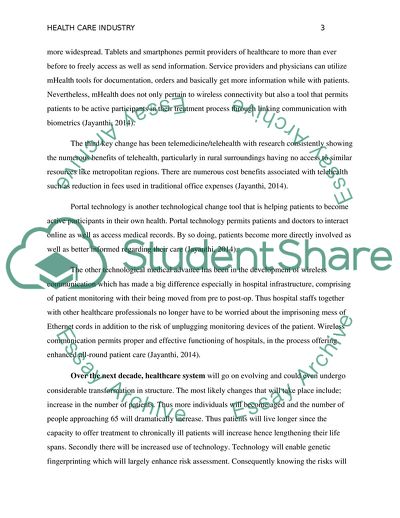Cite this document
(Healthcare Changes over the Past Decade Essay Example | Topics and Well Written Essays - 1250 words, n.d.)
Healthcare Changes over the Past Decade Essay Example | Topics and Well Written Essays - 1250 words. Retrieved from https://studentshare.org/health-sciences-medicine/1858565-health-care-industry-paper
Healthcare Changes over the Past Decade Essay Example | Topics and Well Written Essays - 1250 words. Retrieved from https://studentshare.org/health-sciences-medicine/1858565-health-care-industry-paper
(Healthcare Changes over the Past Decade Essay Example | Topics and Well Written Essays - 1250 Words)
Healthcare Changes over the Past Decade Essay Example | Topics and Well Written Essays - 1250 Words. https://studentshare.org/health-sciences-medicine/1858565-health-care-industry-paper.
Healthcare Changes over the Past Decade Essay Example | Topics and Well Written Essays - 1250 Words. https://studentshare.org/health-sciences-medicine/1858565-health-care-industry-paper.
“Healthcare Changes over the Past Decade Essay Example | Topics and Well Written Essays - 1250 Words”, n.d. https://studentshare.org/health-sciences-medicine/1858565-health-care-industry-paper.


